Nha Rong Wharf in the early 20th century. From here, on June 5, 1911, the patriotic young man Nguyen Tat Thanh left the Fatherland on the ship Admiral Latouche-Tréville to fulfill his ambition of liberating the country from the yoke of colonialism and imperialism_Photo: VNA Document
Before Nguyen Tat Thanh, there were many Vietnamese people who were struggling to find a way to save the nation. Two prominent intellectuals among them were Phan Boi Chau and Phan Chu Trinh. Both were ardent patriots, but Phan Boi Chau and Phan Chu Trinh took two different paths, but both wanted Nguyen Ai Quoc to follow his path. However, Nguyen Ai Quoc chose his own path, despite his great respect for his two predecessors.
In 1923, when meeting the famous Russian poet OE Mandelstam, President Ho Chi Minh said: “When I was 13 years old, I first heard three French words: Liberty, Equality, Fraternity. For us, every white person is a French person. The French said so. And from that time on, I really wanted to get acquainted with French civilization, wanted to find out what was hidden behind those words” (1) . When answering an American writer, President Ho Chi Minh also said: “The Vietnamese people, including my father, often asked each other who would help them escape from French rule. Some people thought it was England, others thought it was America. I felt I had to go abroad to see for myself. After seeing how they were doing, I would return to help my compatriots” (2) . Carrying in his veins the patriotic blood of the nation and his ancestors, absorbing the cultural quintessence of humanity, Ho Chi Minh found here the path to save the Vietnamese people.
Nguyen Tat Thanh was not only born and raised in an intellectual family, but also in a family of mandarins of the royal court. With that background, with his intelligence and talent, if he sought personal gain, it would not be difficult for him. However, because of his patriotism and love for the people, Nguyen Tat Thanh was determined to leave to find a way to save his country with the wish: "After seeing how they do business, I will return to help my people" (3) .
Assessing Nguyen Tat Thanh's decision to go to the West, Professor Tran Van Giau wrote: “Orientation for the revolution was the most important issue at the beginning of the 20th century. Which way to go to reach the destination? Which way is the path to save the country? While older patriots searched in the East (Japan) and then to the North (China), young Nguyen Tat Thanh went to Europe (in 1911). Looking for a way to expel Western colonialists and go to the West. Going against the flow? No one expected that going against the flow would lead to the downstream. If you don't enter the tiger's den, how can you tie the tiger?" (4) .
On June 18, 1919, on behalf of the Association of Vietnamese Patriots in France, including key figures such as Phan Chu Trinh and Phan Van Truong, Nguyen Tat Thanh signed and sent to the Versailles Conference the Petition of the People of An Nam under the name Nguyen Ai Quoc. Although he admired the brave scholars who sought ways to fight to save the people and the country, the young man Nguyen Tat Thanh soon realized the limitations in the path of his predecessors. He believed that Phan Chu Trinh asked the French colonialists to carry out reform, which was "no different than asking the enemy to show mercy" (5) . Phan Boi Chau hoped that Japan would help us expel the French, which was no different from "letting in a tiger through the front door and a leopard through the back door" (6) . Hoang Hoa Tham was more realistic, having directly fought against the French, "but according to people's stories, he still had a feudal character" (7) .
There is one special thing, later both Phans placed their full hope in the young man Nguyen Tat Thanh - Nguyen Ai Quoc. In a letter to Nguyen Ai Quoc in 1922, Phan Chau Trinh lamented that he was old, past his prime and could only rely on Nguyen Ai Quoc. Phan Chau Trinh was also impatient and urged Nguyen Ai Quoc to return to the country to "plot great things": "Mr. Nguyen, I think I have already made clear the cause of my heart and mind. Now my body is like a caged bird or a bowl of fish. Besides, an old tree is easily shaken by the wind, an old person's mind is confused. My situation is like a flower about to wither. I am afraid that because the country is destroyed and my family's traditions are broken, I have to scream to my heart's content, maybe I will wake up from my coma. As for you, like a budding tree, you have more than enough willpower, you study hard, and are proficient in theory, but you do not listen to me. You just hang around here, how can your talent be displayed? Therefore, I sincerely hope that you will change that old method, in order to plot great things. I wish you success and hope that we will see each other again in our homeland" (8) . As for Phan Boi Chau, in a letter to “My beloved nephew” Ly Thuy (aka Nguyen Ai Quoc) on February 14, 1925, he wrote: “I, Phan Boi Chau, never expected that you would become such a little hero in the future. Now that I compare this old man with you, I feel very ashamed… The succession is now in place, the successor is better than the predecessor, on the dark horizon will appear the light of dawn. When the end comes, I am afraid I will not see that day… In rebuilding the country, besides you, who can I entrust to shoulder the responsibility for me? With such great consolation, how can I not feel happy?” (9) .
The victory of the Russian October Revolution (1917) awakened the colonial peoples of the world , awakened the slaves of all five continents. From the encouragement and urge of the Russian October Revolution, the Communist International - the Third International founded by VI Lenin was born. One of the decisive events leading to the decisive choice of the path of the Vietnamese revolution was when Nguyen Ai Quoc was exposed to the "First draft of theses on the national and colonial questions" by VI Lenin published in the newspaper Nhan Dao (July 1920). VI Lenin's theses showed Nguyen Ai Quoc the path to national independence for the country and freedom for the people. He affirmed: "Lenin's theses made me so moved, excited, enlightened, and confident! I was so happy that I cried. Sitting alone in my room, I spoke loudly as if I were speaking before a large crowd: "Oh, my suffering, exiled compatriots! This is what we need, this is the path to liberate us!” From then on, I completely believed in Lenin , believed in the Third International” (10) . In the article “The Path That Led Me to Leninism”, President Ho Chi Minh added: “At that time, I supported the October Revolution only out of natural emotion. I did not fully understand its historical importance. I respected Lenin because Lenin was a great patriot who liberated his compatriots; before that, I had never read any book written by Lenin… As for what a party was, what a trade union was, what socialism and communism were, I did not understand… At first, it was patriotism, not communism, that led me to believe in Lenin, to believe in the Third International. Step by step, in the struggle, while studying Marxist-Leninist theory and doing practical work, I gradually understood that only socialism and communism could liberate oppressed peoples and working people around the world from slavery” (11) .
In 1920, the patriotic young man Nguyen Ai Quoc attended the 18th Congress of the French Socialist Party in the city of Tours as a delegate of Indochina. Nguyen Ai Quoc became one of the founders of the French Communist Party and also the first communist of the Vietnamese nation_Photo: Document
Believing in VI Lenin , following the path of the great VI Lenin , at the 18th Congress of the French Socialist Party (Tours Congress, December 1920), attending as an official delegate and invited to speak, Nguyen Ai Quoc denounced the brutal truths that the French colonialists had carried out in Indochina. He called on the French Socialist Party to act to support oppressed peoples, including the people of Indochina: “The Socialist Party must operate practically to support the oppressed natives… The Party must propagate socialism in all colonial countries… In the name of all humanity, in the name of all socialists, both right and left, we appeal: Comrades, save us!” (12) . Also at this Congress, Nguyen Ai Quoc approved the Party's joining the Communist International. He also, along with other members of the Third International, declared the establishment of the French section of the Communist International, and was one of the founders of the French Communist Party. These events marked an important turning point in Nguyen Ai Quoc's revolutionary life, from patriotism to communism, from a national liberation fighter to an international communist fighter.
With the journey to find a way to save the country on June 5, 1911, Nguyen Tat Thanh - Nguyen Ai Quoc - Ho Chi Minh not only found the way to save the country and liberate his people, not only had great contributions to the Vietnamese people, but also had great contributions to the colonial peoples in the world, to the proletarian revolutionary movement in general, the national liberation movement in the colonial and dependent countries in the world and Asia in particular. Therefore, Uncle Ho's journey to find a way to save the country on June 5, 1911 was a special journey:
First , before Nguyen Tat Thanh, many Vietnamese scholars went to China, Japan, etc. to find a way to save the country. However, no matter which country they went to or which direction they followed, all of those respected scholars were unsuccessful and could not find a way to help Vietnam escape the crisis of its direction at that time. Nguyen Tat Thanh went to the West, to France to find a way to save the country, the country that was occupying Vietnam at that time, and in this place, with his sensitivity and genius intelligence, he encountered the "magic manual" - Marxism - Leninism, taking it as a compass for his revolutionary life.
Second , since the first gunshot of the French colonialists fired at the Da Nang seaport on August 31, 1858, there have been many anti-invasion uprisings that broke out almost everywhere in Vietnam. However, the patriotic movements mainly took place sporadically, independently, without connection and unity with each other. Each movement took place in such a narrow and closed scope, making it easy for the enemy to divide and suppress, leading to failure. In particular, the patriotic movements at that time did not have support or connection with national liberation movements in other countries in the world. By going out to find a way to save the country, encountering Marxism - Leninism, participating in the founding of the French Communist Party, ... Nguyen Ai Quoc connected the Vietnamese revolutionary movement with the world, making the Vietnamese revolutionary movement a part of the world revolutionary movement, seeking international support for the Vietnamese revolution.
Third , by creatively applying Marxism - Leninism to the historical and cultural context of Vietnam, Nguyen Ai Quoc became the first Vietnamese communist to closely link national independence with socialism. With the "magic handbook" - Marxism - Leninism that Nguyen Ai Quoc discovered and then spread to Vietnam - the path to national salvation, the struggle for independence, and the unification of the Fatherland of Vietnam entered a new page in history.
Fourth , on February 3, 1930, the Communist Party of Vietnam was founded and only 15 years later, the Party led the people to rise up and seize power in the August Revolution of 1945. It was also through Nguyen Ai Quoc's creative thinking that the principles of Marxism - Leninism were creatively applied and developed by the Communist Party of Vietnam in accordance with the conditions and historical circumstances of Vietnam. 110 years after Nguyen Tat Thanh left to find a way to save the country, more than 100 years after Nguyen Ai Quoc encountered Marxism - Leninism , more than 90 years since the birth of the Communist Party of Vietnam, the values of applying and creatively developing Marxism - Leninism into the reality of the Vietnamese revolution still have profound contemporary significance. The creative thinking of Nguyen Ai Quoc - Ho Chi Minh continues to be applied, developed and promoted by the Communist Party of Vietnam, as the Resolution of the 13th National Congress of the Communist Party of Vietnam affirmed: "Firmly and creatively apply and develop Marxism - Leninism and Ho Chi Minh thought" (13) .
By creatively applying Marxism-Leninism and Ho Chi Minh Thought in the new situation, our Party has carried out a synchronous and comprehensive renovation process, achieved great and historic achievements, and opened a new page in the history of national development (In the photo: General Secretary and President Nguyen Phu Trong feeds fish at Uncle Ho's Fish Pond in the grounds of the President Ho Chi Minh Relic Site) _Photo: VNA
Fifth , from that historic beginning, there has been a Communist Party of Vietnam today, a Vietnam that "has never had the foundation, potential, position and international prestige as it does today" (14) . Currently, Vietnam has diplomatic relations with 189/193 member countries of the United Nations. Vietnam has been elected twice as a non-permanent member of the United Nations Security Council with a very high number of votes. Vietnam has also participated in most major forums in the world, signed many new-generation free trade agreements with major economies. In 2020, Vietnam officially rose to become the 4th largest economy in Southeast Asia, ranked 37th in the world and was considered one of the 16 most successful emerging economies. The Communist Party of Vietnam has relations with hundreds of political parties in hundreds of countries, including many ruling and political parties. The 13th National Congress of the Party received 368 congratulatory letters and telegrams from political parties and leaders around the world. The above achievements affirm: “Our path to socialism is correct, in accordance with objective laws, with Vietnam’s reality and the development trend of the times; our Party’s renovation policy is correct and creative; the Party’s leadership is the leading factor deciding all victories of the Vietnamese revolution” (15) . These achievements also affirm: “With the right orientation, strong development aspirations and high political determination, our entire Party, people and army will certainly achieve new development achievements for a prosperous and happy Vietnam, moving forward together, standing shoulder to shoulder with the world powers, successfully realizing the wishes of the great President Ho Chi Minh and the aspirations of our entire nation” (16) ./.
------------------------
(1) Ho Chi Minh: Complete Works , National Political Publishing House Truth, Hanoi, 2011, vol. 1, p. 461
(2), (3) Ho Chi Minh National Academy of Politics - Ho Chi Minh Institute and Party leaders: Ho Chi Minh - Biographical Chronicle, National Political Publishing House Truth, Hanoi, 2016, vol. 1, p. 30
(4) Tran Van Giau: Ho Chi Minh - Portrait of a great mind and soul , Ho Chi Minh City General Publishing House, 2014, p. 21
(5), (6), (7) Tran Dan Tien: Stories about President Ho's life and activities , Tre Publishing House, 2007, pp. 13, 14
(8), (9) Phan Van Hoang: Ho Chi Minh - Portrait and heritage , Ho Chi Minh City General Publishing House, 2018, pp. 18 - 19, 20
(10), (11) Ho Chi Minh: Complete Works , op. cit. , vol. 12, pp. 562, 561 - 563
(12) Ho Chi Minh: Complete Works , op. cit. , vol. 1, p. 35
(13), (14) Documents of the 13th National Congress of Delegates , National Political Publishing House Truth, Hanoi, 2021, vol. II, pp. 324, 322
(15), (16) Documents of the 13th National Congress of Delegates , op. cit ., vol. I, pp. 26, 11
Source: https://tapchicongsan.org.vn/web/guest/nghien-cu/-/2018/823134/nguyen-tat-thanh-va-con-duong-cuu-nuoc.aspx



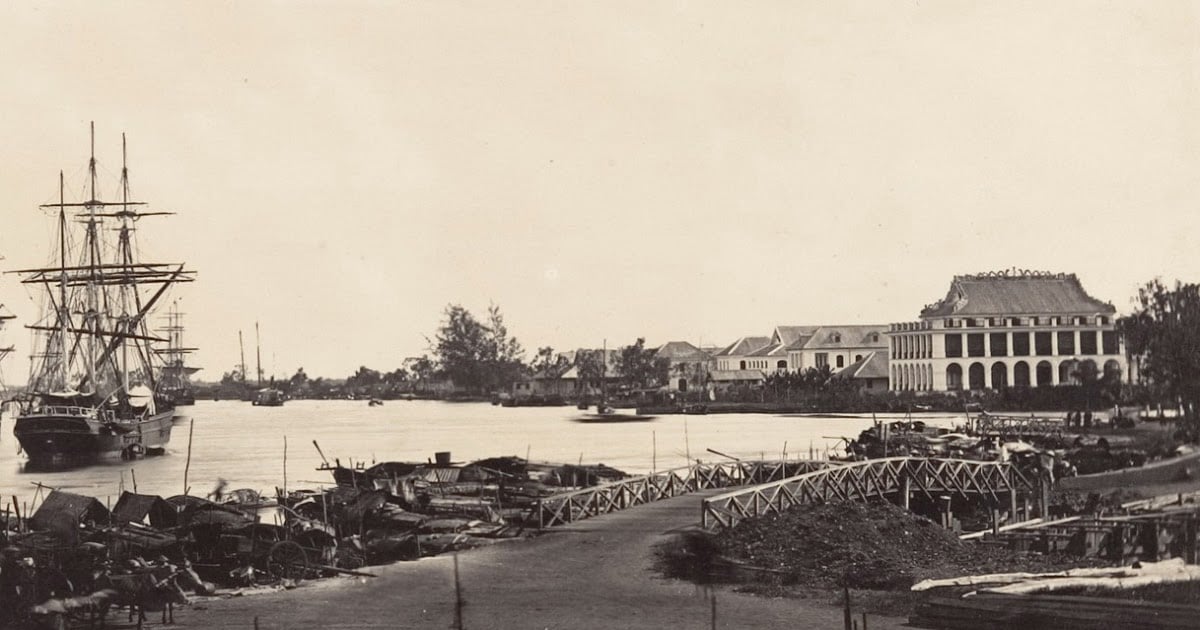
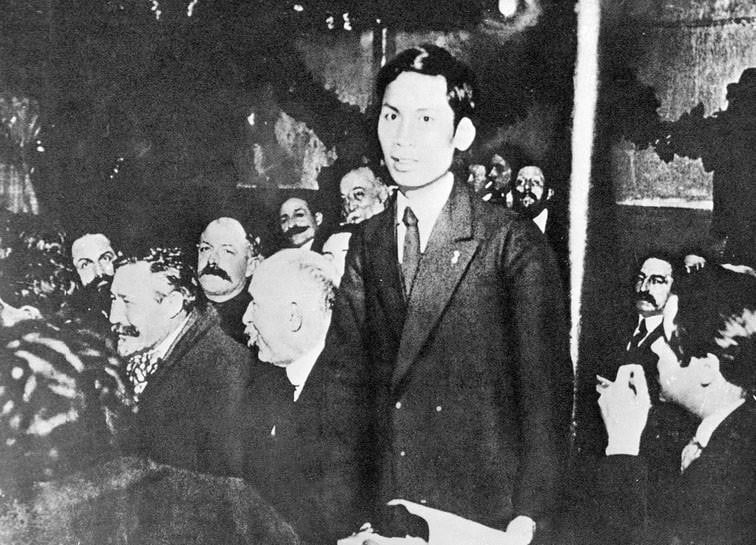
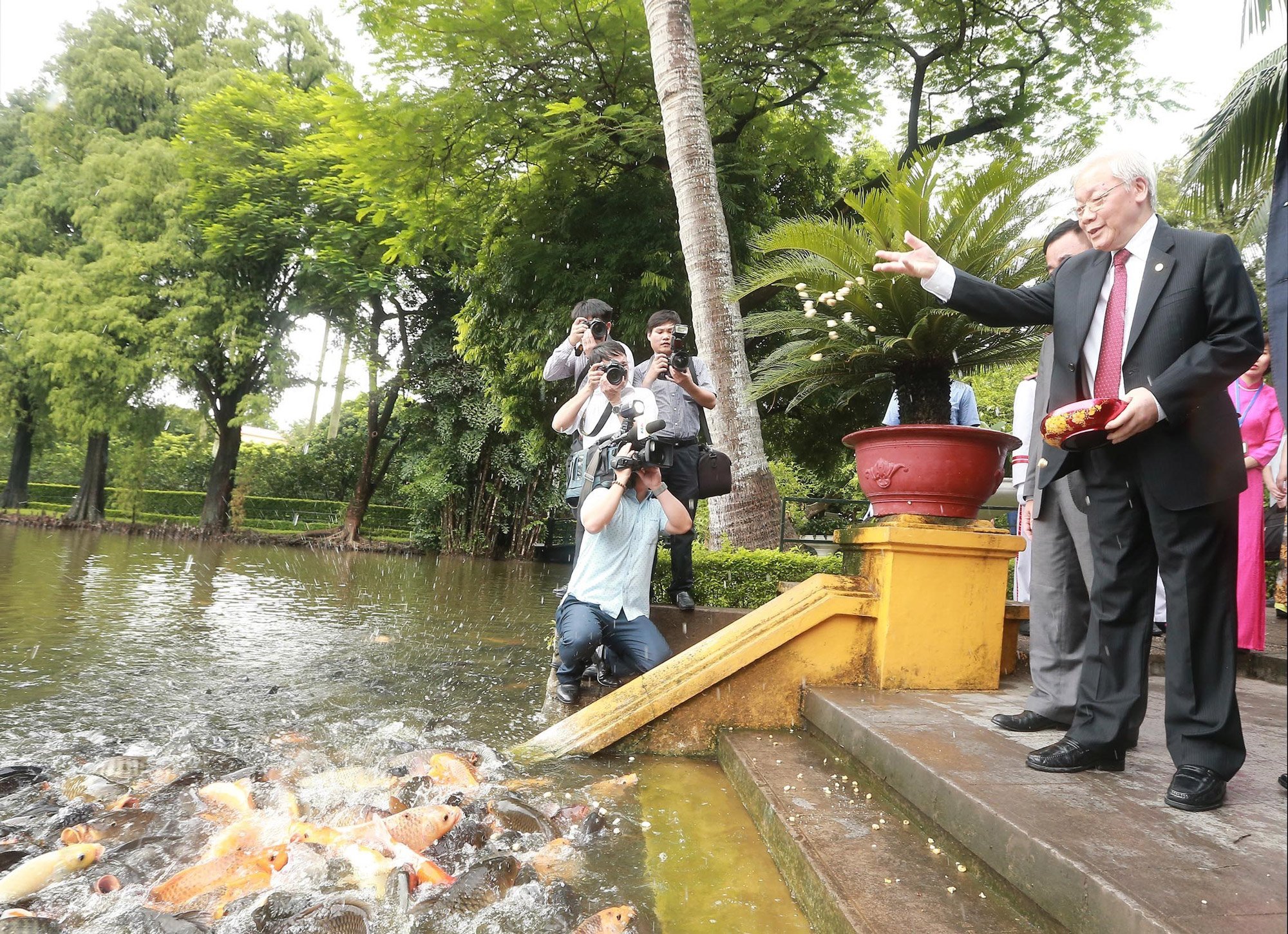
![[Photo] Vinh Hao-Phan Thiet Expressway has a frog's jaw](https://vphoto.vietnam.vn/thumb/1200x675/vietnam/resource/IMAGE/2025/9/13/a89ffa426f7a46ffb810cb1d7bdfb1b8)




![[Photo] General Secretary To Lam attends the Digital Popular Education Symposium - Digital National Assembly](https://vphoto.vietnam.vn/thumb/1200x675/vietnam/resource/IMAGE/2025/9/13/43ebd93f0f5e4d98a2749dab86def7cd)








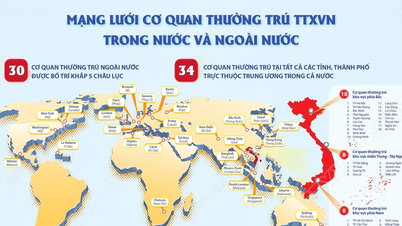












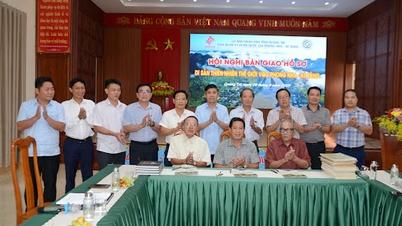














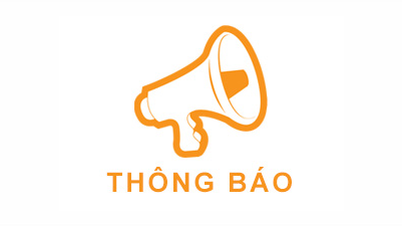










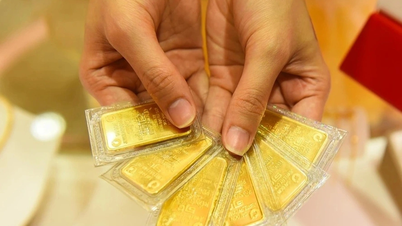





























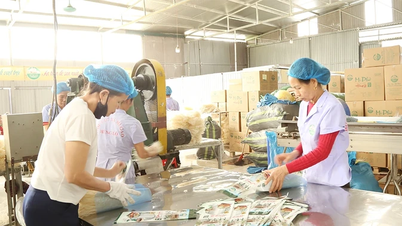








Comment (0)